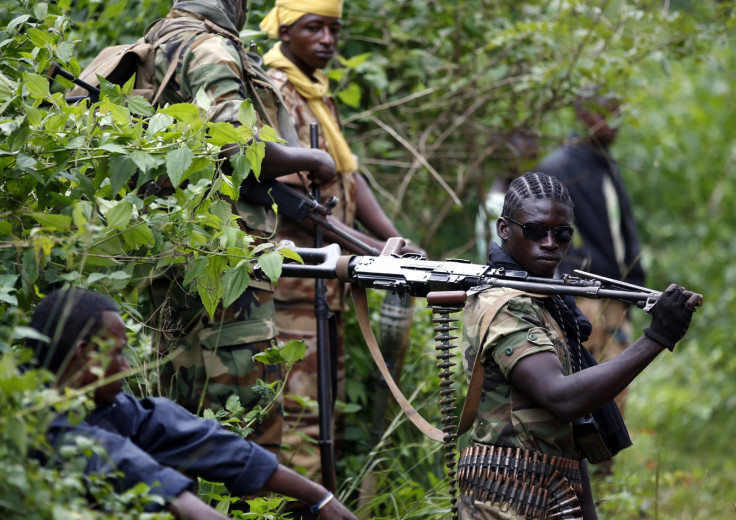Haroun Gaye: Businessman turned Muslim militia leader in Central African Republic
Seleka rebel forces were supposedly disbanded in 2013, but still operate under Gaye.

Impunity in the Central African Republic means that the vast majority of individuals suspected to have orchestrated or committed war crimes and crimes against humanity are still "roaming free".
After decades of violence punctuated by a fragile peace agreement, the country erupted into chaos again when Muslim rebel group Seleka toppled then-president François Bozizé's government in March 2013.
Following the coup, the existing largely Christian vigilante anti-Balaka self-protection groups organised themselves to fight against the Seleka, carrying out large-scale reprisal attacks against Muslim civilians and sparking a sectarian civil war.
The fighters from the Seleka rebel forces were supposedly disbanded in September 2013 when President Michel Djotodia, who they had helped bring to power six months earlier, banned the group.
Many of the ex-Seleka, however, continue to operate, and several of their high-profile leaders have been arrested, but none have ever been prosecuted. IBTimes UK looks at Haroun Gaye, a businessman-turned-leader militia leader.
In his late forties, this ex-Seleka heavyweight is the leader of the Front Populaire pour la Renaissance de Centrafrique (FPRC), a marginalised ex-Seleka armed group in Bangui.
Gaye is also a leader of the so-called Defence Committee of Bangui's mostly Muslim neighbourhood called PK5. According to the United Nations Security Council this Defence Commitee - known as "PK5 Resistance" or "Texas" - "extorts money from residents and threatens and employs physical violence".
How Haroun Gaye continues to command Muslim rebels
The businessman was appointed on 2 November 2014 by UN-sanctioned Nourredine Adam as rapporteur of the political coordination of the FPRC. A year later, Gaye reported to control approximately 100 armed men in the PK5 district, the last Muslim enclave in Bangui, where he has been implicated in several violent incidents since 2013.
A UN panel of experts and Amnesty claim Gaye has also played a prominent role in planning and coordinating attacks against the UN peacekeeping mission in the country, MINUSCA, during the major outbreak of violence in Bangui in September 2015.
According to Amnesty's latest report, Gaye was also involved in attacks on polling stations during the elections in December 2015 and the kidnapping of policemen in June 2016. During the constitutional referendum on 13 December 2015, armed men loyal to Gaye and Abdoulaye Hissene, another prominent ex-Seleka leader, are reported to have attacked civilians at a PK5 polling station, leaving five dead and injuring 20.
Gaye has been issued with summons by CAR judicial authorities to appear for questioning, but has not been subject to any formal arrest warrant.
MINUSCA peacekeepers sought to arrest Gaye on 2 August 2015 in a foiled operation in PK5. Despite their convoy being attacked, Gaye escaped, but a 16-year-old boy and his father were killed, and a 12 year-old girl was raped by the UN peacekeeping force. A peacekeeper was killed and eight others injured. Gaye remains at large.
© Copyright IBTimes 2025. All rights reserved.






















